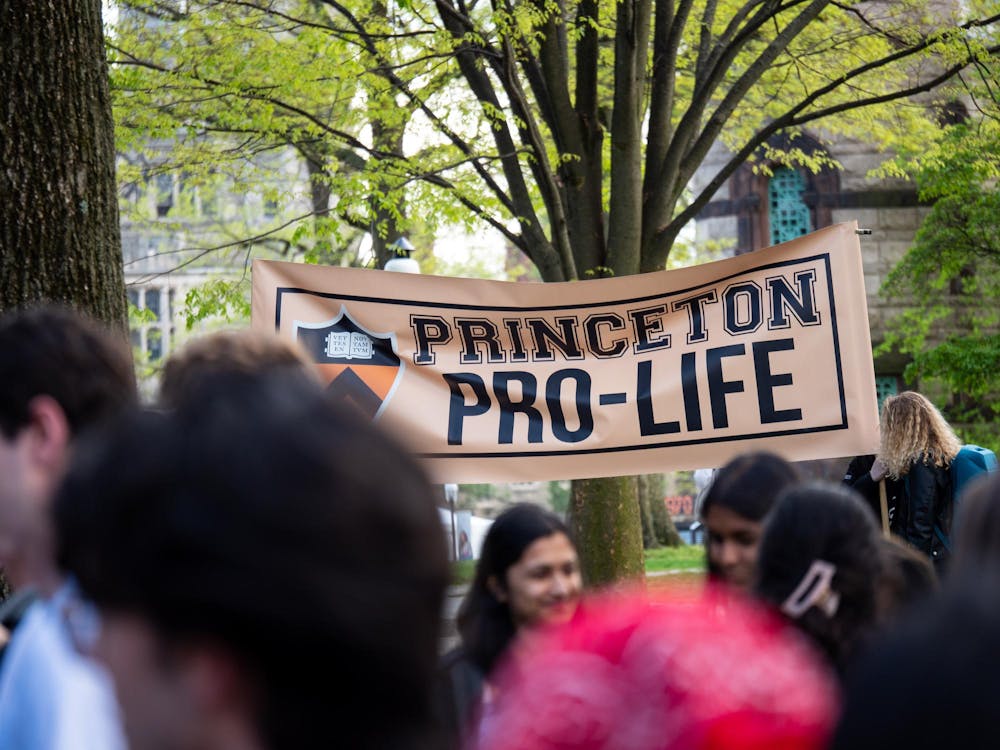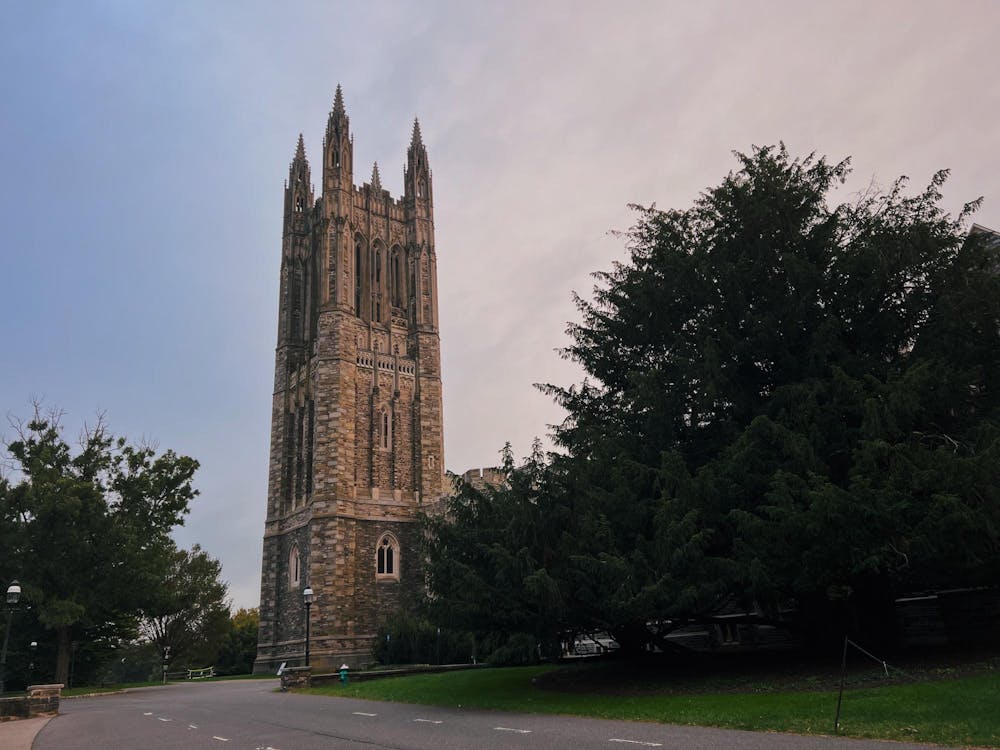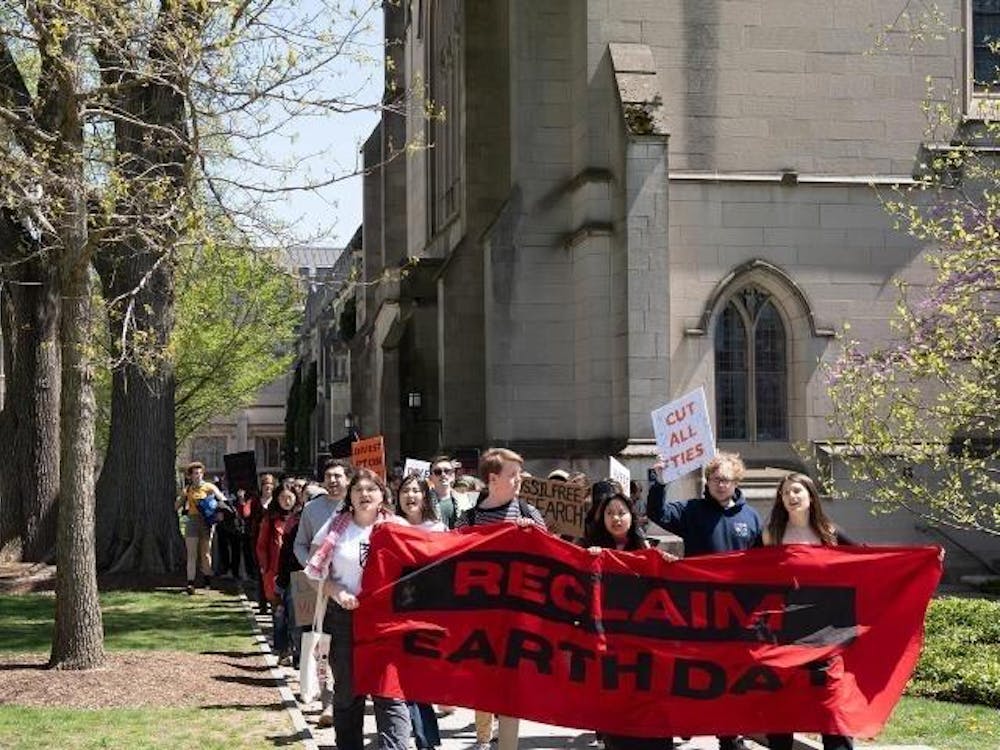William Pierce, theater operations technician at Richardson Auditorium, sent books collected from his book drive at the University to Puedo Leer Library in Granada, Nicaragua last Wednesday. The book drive took place on Mar. 18.
The library’s goal is to spread a love of reading to those who live in Nicaragua, particularly the nation’s children, according tothe mission statement on its website.
Pierce said that he discovered the library in January of this year while on vacation in Nicaragua. He added that he was impressed by — and shared — the library's passion for books and literacy, particularly children’s literacy. Donating books to the library, Pierce notes, was a positive and constructive application of his personal interest in literacy.
“It was interesting. It was a lot of fun for me because I love books. From what I’ve gathered, and I’m by no means an expert, the need for more books — for more children’s books, in particular in Nicaragua, is very significant because they’re very expensive there,” he said.
Pierce collected 21 books during the drive, among which were Spanish-translated children’s books and young adult novels.
According to Puedo Leer Library's website, many Nicaraguan children have never had a story read to them by parents or other adults by the time that they begin school.
“Reading for pleasure in Nicaragua is almost nonexistent,” the website states. “Schools lack storybooks and even reading for learning is severely limited since most schools rarely have textbooks for their students.”
Carol Ann Rea, a member of the library's Board of Directors, noted in a statement that the library receives donated books several times a month, whether from travelers passing by or families whose children have grown up. She said that the main library has over 6000 books, about 90 percent of which are in Spanish.She added that the library, located in a low-income community, does not charge families who may have damaged a rented book, although the library does have over a 90 percent return rate, she noted."Nicaraguans want to read when they have the opportunity. They just can't afford to pay for books themselves," she said.
She added that the library plans on holding monthly meetings with neighborhood parents to discuss the importance of reading, and how to encourage a love of books for their children.
Pierce said the library was created to foster a love of reading, particularly among children from low-income communities. He added that the library might be the only lending library in the city of Granada.
Helen Korengold,a member ofthe library’s Board of Directors, did not respond to a request for comment.
Pierce said that setting up the book drive, which took place in Frist Campus Center, was simple. He received help from the University’s Campus Venue Services, which provided the expertise and resources necessary to complete this personally fulfilling task.
Nick Robinson, director of University Campus Venue Services, deferred comment to University Media Relations Specialist Min Pullan.
Pullan noted that, through University Scheduling, many groups are able to use tables on the Frist 100-level to promote or hold events and initiatives. She added that the event was affiliated with Latino Princetonians, an Employee Resource Group of the Office of Human Resources.
The Latino Princetonians could not be reached by the time of publication.
“I think... in most less-developed countries there is a need and a desire for books. And I’ve been aware of this for years, and this is the first time I’ve been able to really act on it,” he said.
"Here in Nicaragua,"Rea said, "schools do not have libraries, and if they do, they are generally used a storage rooms for the workbooks the government supplies. And if they were lucky enough to have had books donated to them they do not allow the children, and sometimes even teachers, to touch them as the books will get dirty and ripped."Rea said that the Nicaraguan understanding of literacy differs greatly from the North American understanding. If someone in Nicaragua, Rea explained, could write their name, know the alphabet and be able tosound out words, they are deemed literate; one does not need to necessarily understand what is being read. Rea said that, during a park program where anyone can walk up to a library employee and read with them, a young man came and read an entire book syllable-by-syllable without understanding the story. Reacongratulated him, as he had never read a book before.
Pierce added that given the Princeton community's popular libraries and active readership, there was a huge surplus of books that made it easy to help the developing country.
“I enjoyed the process tremendously and look forward to continuing,” he said, noting that he plans to hold another book drive next year around the same time, in the late winter or early spring.
Pierce added that people should participate in book drives because of the positive outcome that donations will have on the receiving communities.
“I think that a love of literacy, a love of reading, promotes economic progress and self-sufficiency. Besides simply providing people with pleasure, which book reading does, it also enriches their lives, helps them to become better-educated, better able to support themselves and better able to help their societies and countries grow. It is almost self-evident, the positive benefit of literacy and reading,” he said.
Rea noted that she shares this sentiment."By offering people the opportunity to hold and read a book we are giving them a better chance for the future. This, then, is the great value a library can give to the future of the citizenry of any place on earth but particularly a Third World Country.By giving books to libraries you are helping someone, somewhere to develop a love of reading and that is a tremendous gift to give"







